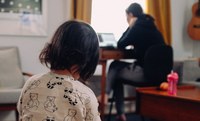How Covid-19 taught researchers to engage and empower citizens
During the last two years of frantic pandemic management by authorities, the role of scientists was particularly under the spotlight. Researchers had to simultaneously conduct research about the virus itself and the consequences of public policy decisions. Lockdowns were certainly the most prominent tool in the public debate, as they not only aimed to influence the virus spread but also affected people’s social life. Continuous research during the Swiss lockdown in 2020 was made possible thanks to a citizen science approach supported by internet and mobile technologies, where people could take part in online surveys, share experiences and media with a mobile app, participate in interviews, and engage in live discussion groups through online events. The results of this work have been published in Humanities and Social Sciences Communications, a Springer Nature open-access journal.
From traditional to action-oriented research
The first results of this study showed among others that gender disparities had an impact on how people fared during the lockdown in Switzerland. They also highlighted doubts about the future and hopes for change. Therefore, researchers examined methodological implications of pursuing both knowledge production-oriented and action-oriented objectives in urgent and uncertain situations. “In this sense, the Corona Citizen Science project offered new perspectives about the impact of interdisciplinary approaches and how technology can be used for the greater good,” Daniel Gatica-Perez, head of Idiap’s Social Computing group and one of the co-authors of the paper, explains.
The results of this methodological reflection illustrate that well-designed collaborative research, for example distinguishing explicitly the multiples objectives and priorities, makes it possible to stimulate empowerment through reflection and mutual learning. However, unequal engagement opportunities must be addressed, for example by acknowledging and tackling existing social biases. The research also suggests that this approach is appropriate for acting upon urgent crises, meaning that, in anticipation of future crises, multi-targeted and collaborative research needs to be fostered. In these conditions, this action-oriented research approach can become a tool that enables timely reactions to societal concerns.
More information
- Scientific article: “Explore, engage, empower: methodological insights into a transformative mixed methods study tackling the COVID-19 lockdown”, Livia Fritz, Ulli Vilsmaier, Garance Clément, Laurie Daffe, Anna Pagani, Melissa Pang, Daniel Gatica-Perez, Vincent Kaufmann, Marie Santiago Delefosse and Claudia R. Binder
- Social computing research group
Image credit: Photo by charlesdeluvio on Unsplash
